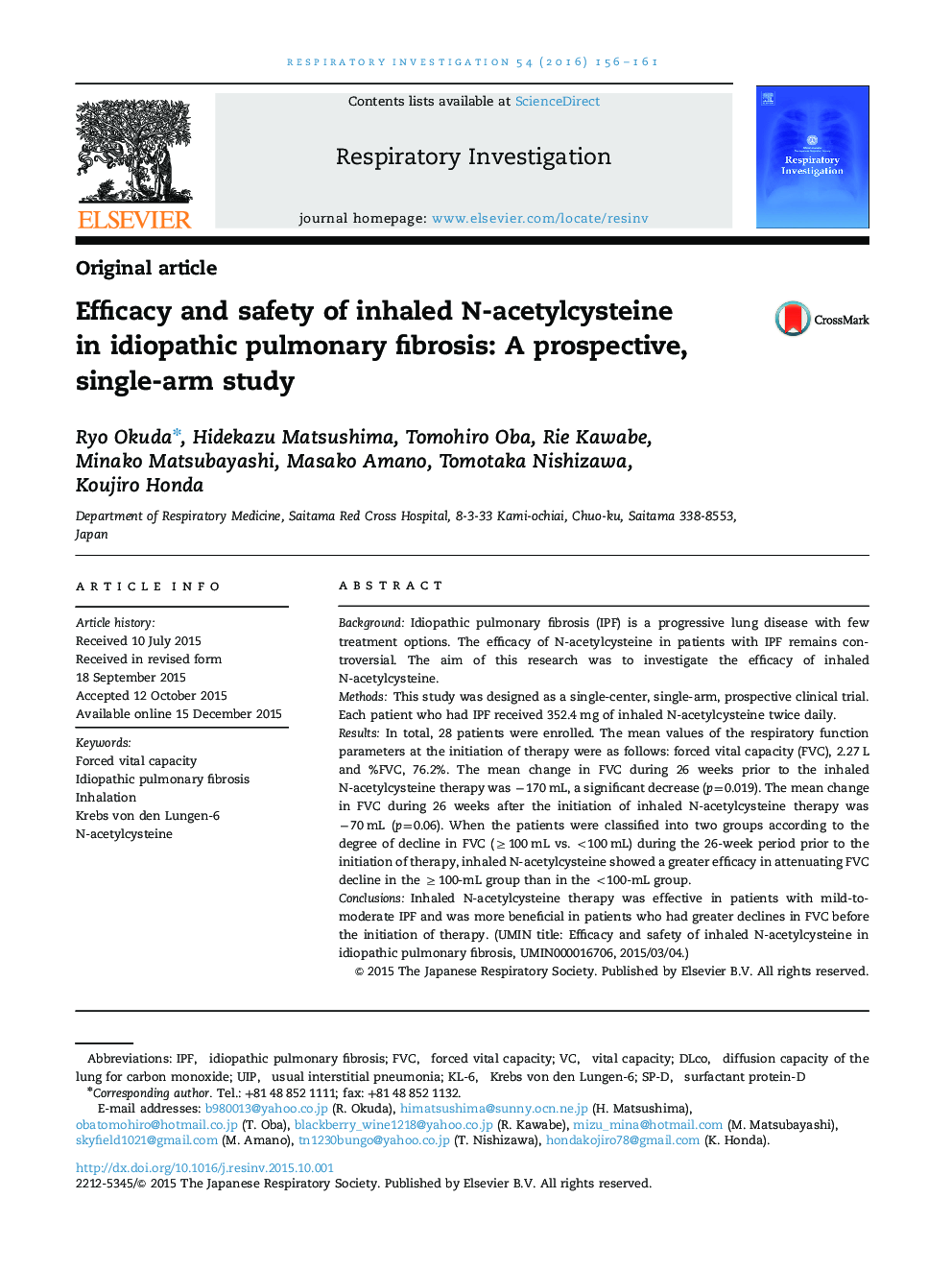| Article ID | Journal | Published Year | Pages | File Type |
|---|---|---|---|---|
| 3418563 | Respiratory Investigation | 2016 | 6 Pages |
BackgroundIdiopathic pulmonary fibrosis (IPF) is a progressive lung disease with few treatment options. The efficacy of N-acetylcysteine in patients with IPF remains controversial. The aim of this research was to investigate the efficacy of inhaled N-acetylcysteine.MethodsThis study was designed as a single-center, single-arm, prospective clinical trial. Each patient who had IPF received 352.4 mg of inhaled N-acetylcysteine twice daily.ResultsIn total, 28 patients were enrolled. The mean values of the respiratory function parameters at the initiation of therapy were as follows: forced vital capacity (FVC), 2.27 L and %FVC, 76.2%. The mean change in FVC during 26 weeks prior to the inhaled N-acetylcysteine therapy was −170 mL, a significant decrease (p=0.019). The mean change in FVC during 26 weeks after the initiation of inhaled N-acetylcysteine therapy was −70 mL (p=0.06). When the patients were classified into two groups according to the degree of decline in FVC (≥100 mL vs. <100 mL) during the 26-week period prior to the initiation of therapy, inhaled N-acetylcysteine showed a greater efficacy in attenuating FVC decline in the ≥100-mL group than in the <100-mL group.ConclusionsInhaled N-acetylcysteine therapy was effective in patients with mild-to-moderate IPF and was more beneficial in patients who had greater declines in FVC before the initiation of therapy. (UMIN title: Efficacy and safety of inhaled N-acetylcysteine in idiopathic pulmonary fibrosis, UMIN000016706, 2015/03/04.)
